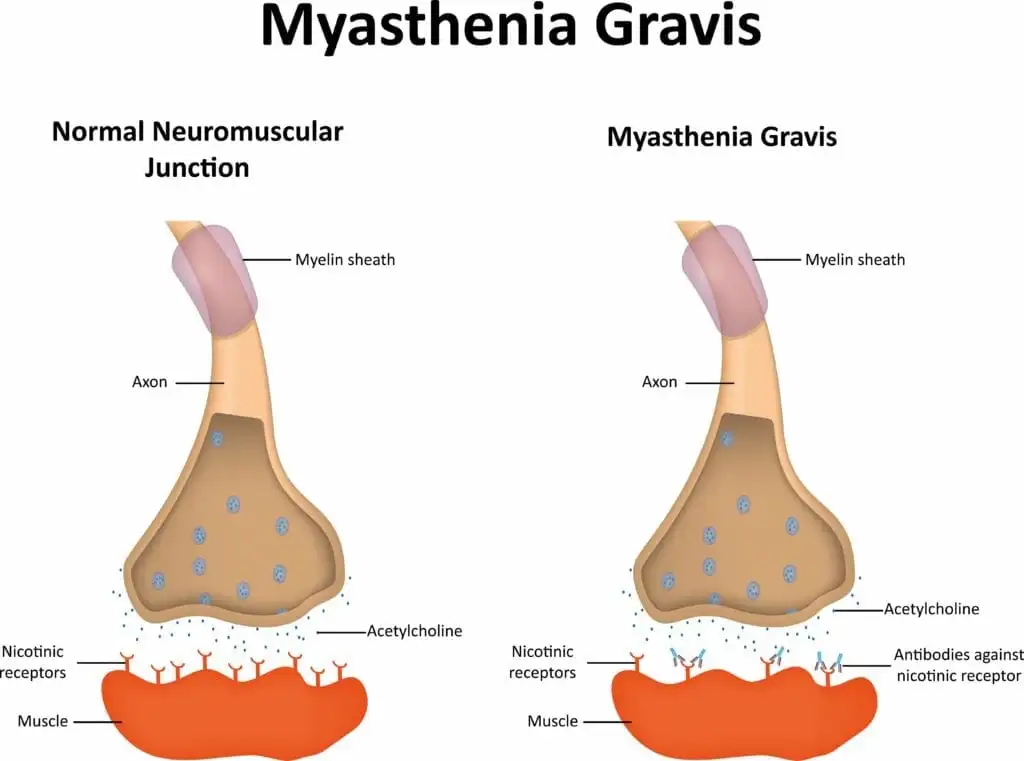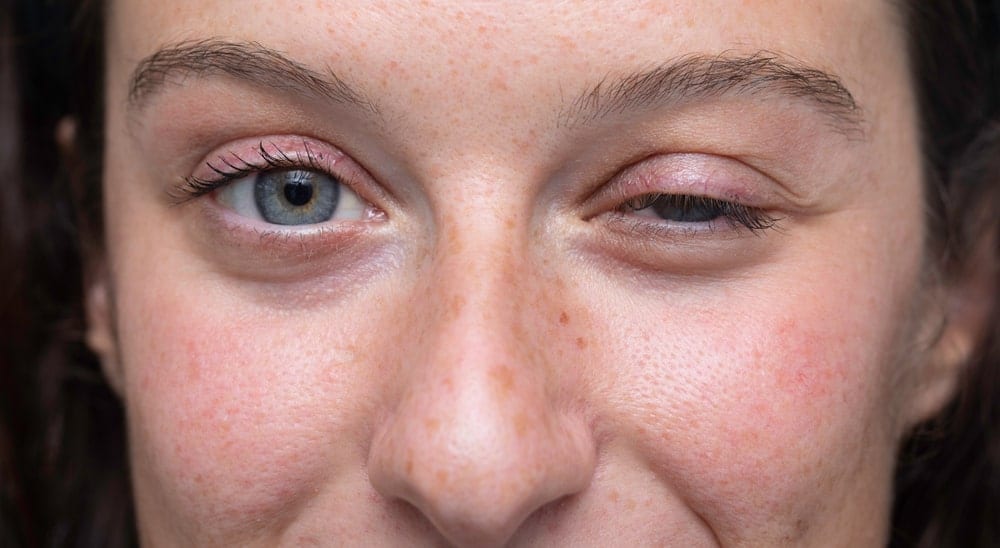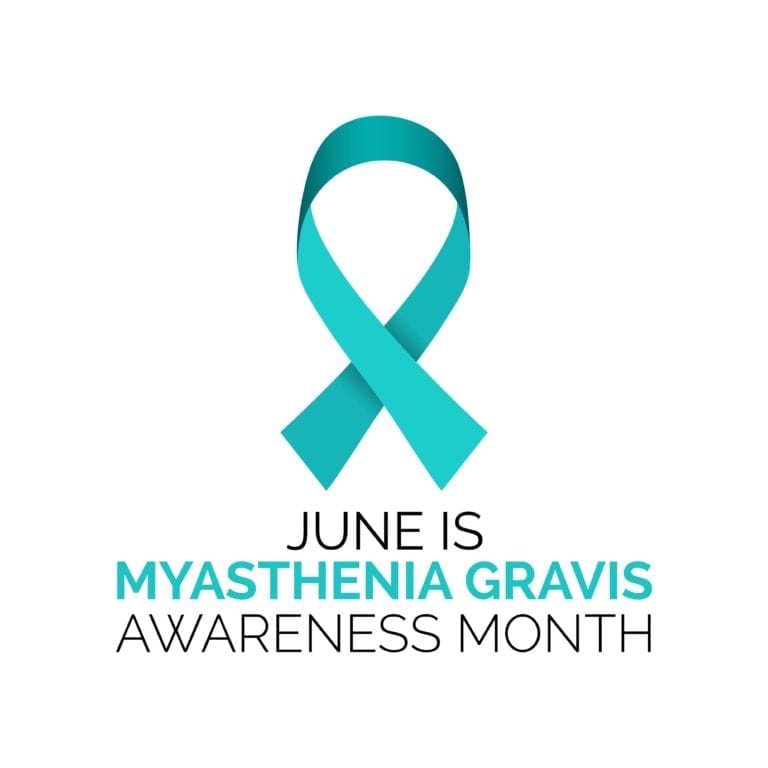The month of June is Myasthenia Gravis Awareness Month. During the month of June, the MG community comes together to raise awareness about the condition, as well as to promote research and fundraising to support individuals with MG. Myasthenia Gravis, commonly referred to as MG, is a neuromuscular disorder that weakens the skeletal muscles responsible for movement by impairing the connection between the nerves and muscles. Although this condition is rare, MG still affects around 36,000-60,000 Americans. However, this number could be potentially higher due to the fact that MG is under diagnosed.
How does MG affect the body?

In order to understand how MG affects the body, we must first look at the basics of neuromuscular communication. Normally, nerve impulses originate in the brain and travel down nerve pathways to the junction where the nerve meets the muscles. This is known as the neuromuscular junction and it is actually a tiny gap between the nerve ending and muscle fibers. In order to transfer the signal from one side of the gap to the other, the nerve ending releases a chemical called acetylcholine. Acetylcholine will bind with receptor sites on the muscle fibers and once enough receptors have been activated by acetylcholine, this results in the movement of voluntary muscles.
People with MG, however, are missing as many as 80% of these acetylcholine receptor sites on the muscle fibers. This is because the immune system produces antibodies that attack and destroy these receptor sites faster than the body can produce them. As a result, not enough acetylcholine receptors sites are activated, which cause muscle weakness.
What are the symptoms of MG?
Overall, symptoms of MG tend to increase with activity and decrease with rest. Symptoms of MG can include:

- Fatigue
- Facial paralysis
- Double vision
- Drooping eyelids
- Difficulty breathing, swallowing, or chewing
- Hoarse voice
- Trouble talking
- Problems walking up stairs or lifting objects
How does one get MG?
Unfortunately, the exact cause of MG is unknown. There are a few theories, such as one that believes MG can be attributed to certain viral or bacterial proteins.
MG can affect anyone regardless of age, gender, or race. It is also believed to not be inherited or contagious, however there have been instances where more than one case occurs in the same family.
How is MG diagnosed and treated?
To diagnose MG, your doctor will perform a complete physical examination and a neurological exam. They may evaluate different things such as reflexes, the presence of muscle weakness, muscle tone, eye movements, sensation in areas of your body, and motor function. Additionally, they may perform diagnostic tests such as: repetitive nerve stimulation test, a blood test that looks for MG antibodies, imaging tests like CT scans or MRI, or a Tensilon test.
If a case of MG is confirmed, your doctor will recommend treatment that manages your symptoms and controls your immune system response. While MG has no cure, managing the condition can significantly improve your quality of life. Treatments for MG can include one or more of the following:
- Medications such as corticosteroids and immunosuppressants help to decrease the immune system response that causes the destruction of acetylcholine receptors. Additionally, cholinesterase inhibitors help to increase the communication between nerves and muscles.
- Thymus gland removal can help decrease muscle weakness since the thymus gland is part of the immune system and can contribute to excessive immune system response.
- Plasmapheresis, or plasma exchange, removes the antibodies responsible for damaging receptor sites. Although this can help decrease muscle weakness temporarily, this treatment is short-term and is generally used before surgery.
- Intravenous immune globulin (IVIG) comes from donor blood. IVIG affects the creation and function of antibodies.
- Lifestyle changes such as getting enough rest to give your muscles a chance to recover, avoiding stress and heat, and checking with your doctor before starting any new medications, can also help to manage the symptoms of MG.

Dr. Kashouty, a diplomate of the American Board of Psychiatry and Neurology (ABPN), practices general neurology with fellowship trained specialization in clinical neurophysiology. Dr. Kashouty finds the form and function of the nerves and muscles the most interesting part of neurology, which is what led him to specialize in neurophysiology with more emphasis on neuromuscular conditions. He treats all neurological diseases, but his main focus is to treat and manage headaches, movement disorders and neuromuscular diseases.





